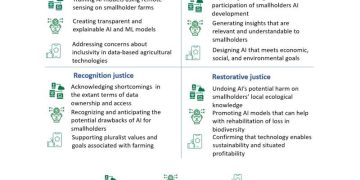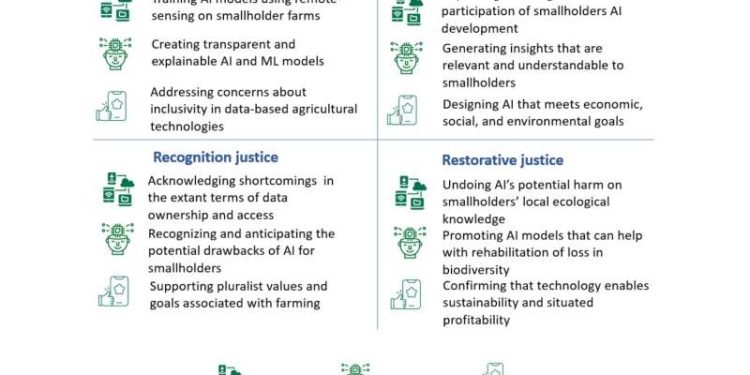This article delves into the transformative potential of artificial intelligence (AI) in the realm of small-scale farming. By leveraging AI technologies, farmers, agronomists, agricultural engineers, and farm owners can enhance productivity, streamline operations, and overcome the challenges faced by small-scale agricultural enterprises. Explore how the latest advancements in AI are reshaping the future of farming.
In today’s agricultural landscape, small-scale farmers often encounter unique challenges that can hinder their productivity and profitability. However, the integration of artificial intelligence (AI) into small-scale farming practices is presenting a game-changing solution. As reported on Phys.org [^1], recent developments in AI are empowering farmers with data-driven insights, predictive analytics, and automation capabilities that have the potential to revolutionize small-scale agriculture.
One area where AI is making a substantial impact is in precision agriculture. By employing AI-powered sensors and data analysis algorithms, farmers can monitor and manage their crops with unparalleled precision. These sensors collect a wealth of data regarding soil moisture levels, nutrient content, temperature, and crop growth, providing farmers with real-time information to make informed decisions. For instance, AI algorithms can analyze the collected data to determine optimal irrigation schedules, precise fertilizer application rates, and identify potential pest or disease outbreaks before they escalate.
The utilization of AI in small-scale farming also enables the implementation of predictive analytics. By analyzing historical data, weather patterns, and market trends, AI algorithms can generate accurate predictions related to crop yield, market demand, and optimal planting times. These predictive insights empower farmers to plan their operations strategically, minimize risks, and optimize their resource allocation. Additionally, AI-powered tools can aid in financial management, helping farmers identify cost-saving opportunities and improve their overall financial sustainability.
Automation is another aspect where AI offers tremendous potential for small-scale farmers. AI-powered robots and drones can perform labor-intensive tasks such as seeding, planting, and harvesting with greater efficiency and precision. These intelligent machines can navigate fields, detect crop health indicators, and autonomously perform targeted interventions. By leveraging AI-driven automation, small-scale farmers can overcome labor shortages, reduce operational costs, and enhance productivity.
In conclusion, the integration of artificial intelligence into small-scale farming practices has the potential to revolutionize the agricultural landscape. Through AI-powered precision agriculture, predictive analytics, and automation, farmers can harness data-driven insights to optimize their operations, increase productivity, and overcome the unique challenges faced by small-scale enterprises. Embracing AI technologies can pave the way for a sustainable and prosperous future for small-scale farmers.
Tags: Small-Scale Farming, Artificial Intelligence, Precision Agriculture, Data-Driven Insights, Predictive Analytics, Automation, Agricultural Technology, Farm Management, Sustainable Agriculture, Resource Optimization































